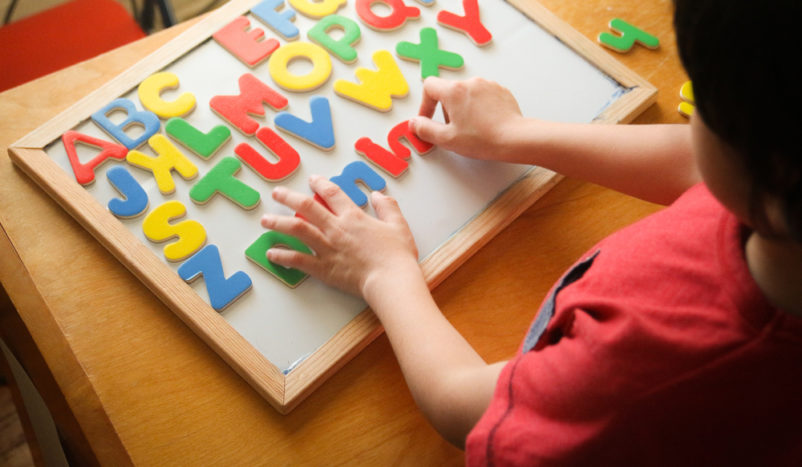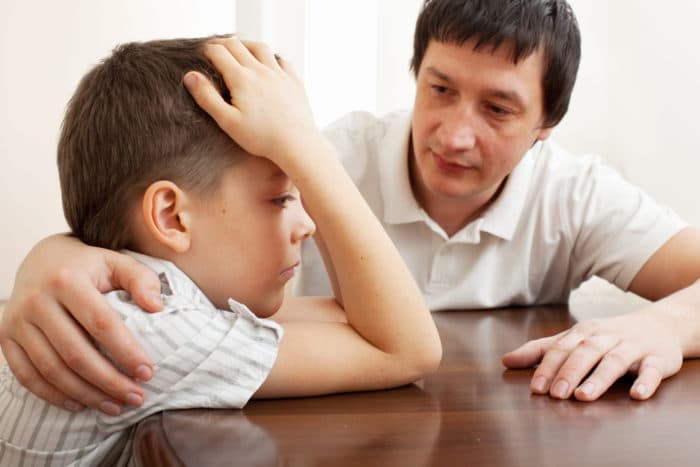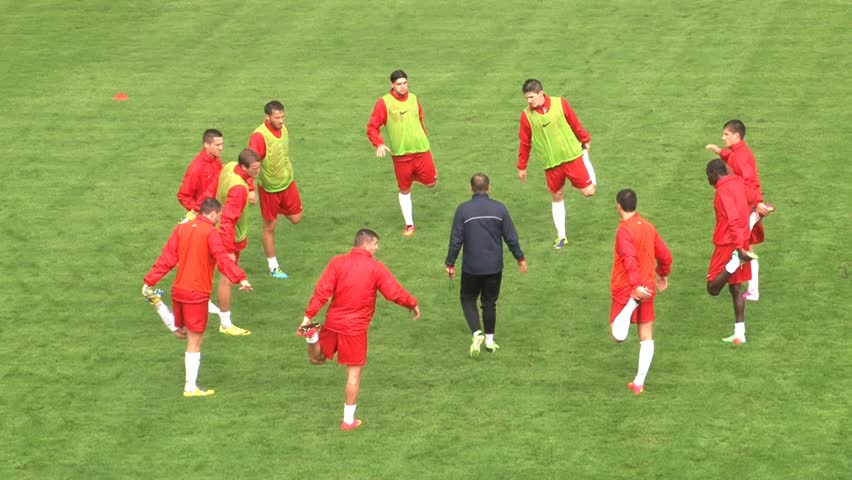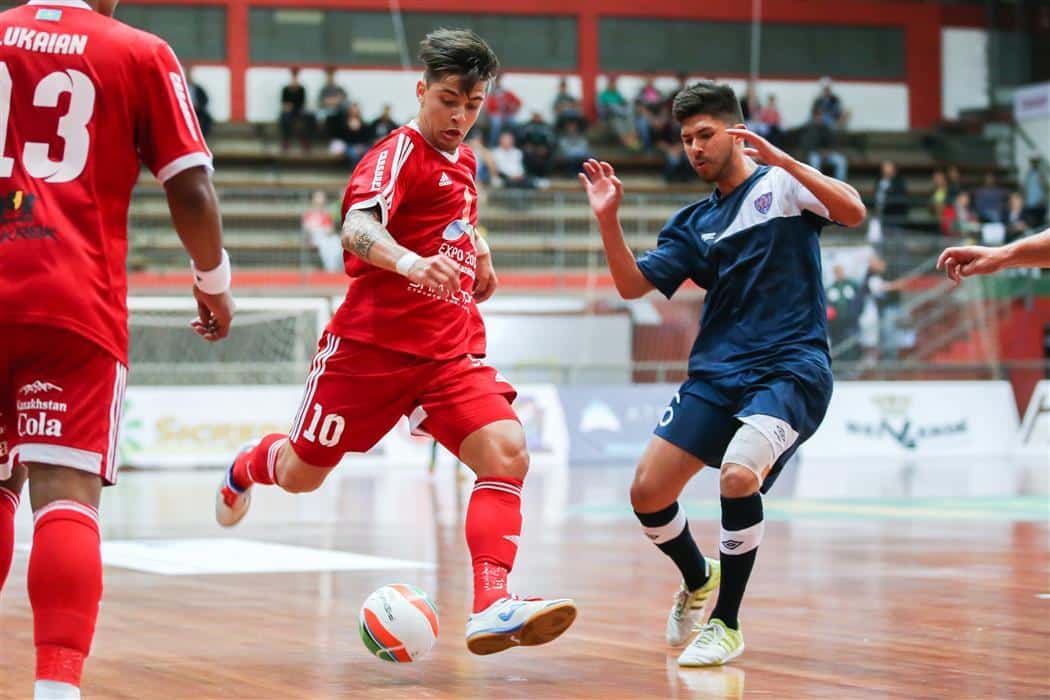Contents:
- Medical Video: ADHD, Dyslexia and/or Learning Disabled: Signs and Symptoms of Undetected Eyes & Vision Problems
- What is dyslexia?
- What causes dyslexia?
- Can dyslexia be cured?
- What are the types of dyslexia?
- Common signs and symptoms of people who have dyslexia
- 1. Difficulty learning to read
- 2. The ability to speak very slowly
- 3. Milestoneachieved longer
- 4. Having coordination difficulties
- 5. Difficulty concentrating and getting sick easily
- Characteristics of dyslexia based on age
- Who is at risk for this condition?
- What are the worst possibilities for people with dyslexia?
- Do you need to see a doctor?
- How is dyslexia diagnosed?
- What should parents do if they have children with dyslexia?
- How do you improve the learning abilities of dyslexic children?
- 1. Applying learning techniques that are appropriate to their conditions
- 2. Supports children to continue learning to read
- 3. Show your attention and affection as a parent
Medical Video: ADHD, Dyslexia and/or Learning Disabled: Signs and Symptoms of Undetected Eyes & Vision Problems
The age of children is the right time to learn many things. Unfortunately, many parents who observe their baby's behavior are difficult to read, write, or spell. Do not be scolded immediately, not necessarily why the child is lazy to learn. It could be a child suffering from dyslexia. What is dyslexia? Consider the following review.
What is dyslexia?
What are the benefits of reading for children? Many. Reading can help children to understand things, enrich language and writing skills, and stimulate children's imagination. However, for dyslexic children, to get this benefit needs a very hard effort. Why?
Dyslexia is a type of mental illness in children, also known as learning disorders. This condition makes it difficult for children to read, write, spell, or speak clearly.
Their ability to think may be above average; they can think quickly and creatively with strong reasoning abilities. Unfortunately, they will still experience difficulties in the process of understanding lessons in terms of visual or sound.
For example when reading, the sense of sight will send signals from the image or letter they see and hear to the central nervous system, the brain. Then, the brain will connect the letters or images in the correct order until they are formed into words, sentences, or paragraphs that we can read and understand.
However, children with dyslexia have difficulty matching the letters and images. They will find it difficult to understand the readings or images that they see so learning the next thing will be more difficult.
What causes dyslexia?
The cause of dyslexia is not known with certainty. However, researchers agree that broadly the causes of dyslexia are divided into two, namely:
- Genetics. The cause of dyslexia is a defect in the DCD2 gene, this is the most common. Usually this condition is inherited from family members. A condition characterized by cerebral dysfunction, which is the part of the brain that regulates thinking and moving activities.
- Injury or other conditions. In addition to heredity, the cause of dyslexia is a disorder experienced by children after they are born such as brain injury, stroke, or other trauma.
This learning disorder can also be influenced by one's ethnic background, especially the use of language. Every country has grammar rules, how a word is written or sounded.
People with learning disabilities may find it harder to learn English, why? This language has a way of writing and reading letters that are usually different. For example, the word one is written "one"But read to be"wan“.
Dyslexia is very common. It almost affects 20 percent of the population and becomes 80-90 percent of the causes of children's inability to learn. Children with this condition have normal vision. But during the learning process, they need more time to understand what is learned than other normal children.
Can dyslexia be cured?
Dyslexia does occur at the age of children, but will continue to be experienced until adulthood. In fact, many adults do not realize that they have this disease.
This learning disorder cannot be cured. Someone will still have it along with increasing age. However, with proper care and support, dyslexic children can still work and become successful people as adults as other children.
What are the types of dyslexia?
Learning disorders can be classified into several types. Some types that are often used to describe dyslexia are:
- Phonological dyslexia: difficulty in spelling out or spelling a word into letters. People with this type of dyslexia find it difficult to write words that are heard. This type is also known as dysphonetic dyslexia or hearing dyslexia.
- Surface dyslexia: a condition characterized by an inability to recognize word for word so that words are difficult to remember and learn. This type of learning disorder is called million with visual dyslexia ordyseidectic dyslexia.
- Rapid naming deficit:a condition characterized by an inability to say the numbers or letters seen.
- Double deficit dyslexia: conditions characterized by the inability to separate sounds to mention letters and numbers.
- Visual dyslexia: conditions that are characterized by difficulties in interpreting the words seen.
Common signs and symptoms of people who have dyslexia
To find out whether a child or someone has this learning disorder, you need to recognize what the signs and symptoms are. All that can happen at any age, but tends to appear in childhood. Signs and symptoms of dyslexic children are:
1. Difficulty learning to read
Many dyslexic children who have normal intelligence like other children. However, they are often seen trying hard to learn to read. Like longer to study letters, it is difficult to pronounce or guess letters or numbers, or overturn the letters of toys.
Fortunately, this can be overcome by proper teaching and support from people around children or people with dyslexia.
2. The ability to speak very slowly
Children with learning disabilities may take longer to learn to speak. They often mispronounce words or have difficulty distinguishing different sounds of words. Even though they have learned to recognize letters, chances are that they will forget the previous lessons that have been studied.
3. Milestoneachieved longer
Dyslexic children can learn to crawl, walk, talk, or ride a bicycle as usual, but slower than other children their age.
4. Having coordination difficulties
Dyslexic children may look weaker than their peers. They sometimes have difficulty catching the ball, due to poor eye coordination with their hands. If the child's coordination is very bad, chances are the child has other conditions such as dyspaxia.
5. Difficulty concentrating and getting sick easily
Children with learning disabilities are usually difficult to concentrate on something. This condition complicates the process of learning and understanding something. In addition, dyslexic children are also more likely to develop immune system problems, such as easy fever, allergies, eczema, or asthma.
Characteristics of dyslexia based on age
Signs of dyslexia are difficult to recognize before children enter school. Once the child reaches school age, your child's teacher may be aware of a problem with the child. The severity of conditions is different for each child, but the condition will become clearer when the child has begun to learn to read.
If learning disorders occur in children who are not in school or under five years old, the possibility of signs of dyslexia is:
- It's a bit difficult to recite something
- Slow talking
- It's hard to remember things from a movie or something he likes
- Having difficulty learning basic letters (alphabet), difficult to distinguish or recognize colors
- Difficult to distinguish similar words, or even similar letters (such as b and d)
If learning disorders occur in school-aged children, the possibility of signs of dyslexia is:
- Difficult to remember numbers that are more than one number
- Children will have difficulty reading, spelling, and writing
- Children will have difficulty learning foreign languages
- Difficult to follow directions; right or left
- When doing something, especially homework, the writing or pattern will be less neat
- It's hard to find words to answer other people's questions
- Difficult to distinguish letters or words
If learning disorders occur in adolescents or people who are more mature, the possibility of signs of dyslexia is:
- Difficulty in saying what is read
- Often mispronounce names or words, use inappropriate words
- Difficulty understanding a writing or story
- The difficulty to summarize the story
- Difficulty in learning foreign languages
- Difficulty in memorizing
- Difficulty in retelling a story or event
Who is at risk for this condition?
This mental condition can happen to anyone. However, it is more risky for people with the following conditions:
- Having family members with learning disorders
- Premature babies or low birth weight babies
- During the womb, the fetus is exposed to nicotine, drugs, alcohol, or infections that affect the development of the brain
- Abnormalities in brain structure that play a role in word processing activities and thought processes
What are the worst possibilities for people with dyslexia?
Dyslexia often escapes parental supervision. In fact, some are not aware of having this disease, until adulthood. You need to know that people with this condition can cause a number of problems, such as:
- Problem learning process. Reading and writing are basic skills that must be mastered by someone. Not only for learning, but also important for adult life later. Children can also not go up to class because they are left behind a lot of lessons. When mature, the work that can be done is also limited.
- Social problem.Without treatment, this condition can make a child become insecure with his friends. In addition, children will tend to withdraw from the environment, have problems in behaving, anxiety, and are more aggressive.
- Mental health gets worse.Children with this condition have a higher risk of developing ADHD disorders. If you already have this condition, which is attention and hyperactive behavior that is difficult to control makes dyslexia more difficult to overcome.
Do you need to see a doctor?
Learning to recognize letters, reading, spelling, writing, and stringing words is usually learned by preschoolers. His ability will be more honed after entering elementary school. If you see signs of a child not being able to attend school properly, it is not necessarily a sign that children have learning disabilities.
However, in general, children with this condition usually cannot understand the basics of the lessons that should be understood by their age. Consult with a doctor or psychologist, if you feel worried about the child's condition.
How is dyslexia diagnosed?
To get the right diagnosis regarding dyslexia in children, you should go to school and ask about the development of children's learning in school. In addition, there are several tests that children must do, such as:
- Reviewing the history of the disease may be in the family
- Speech ability test; question and answer or retell an incident
- Test for the introduction of letters, words, or numbers
- Test the understanding of the meaning of the words and contents of the reading
- Test spelling words and writing words
During the assessment process, the examiner must override other conditions or causes that make the child experience difficulties in learning, such as vision problems, hearing loss, or lack of clarity in the intrusion during the test.
So, other tests also need to be done by children, such as brain health tests and psychological tests. This helps the doctor to know the condition and function of the child's brain as well as to understand the child's mental health.
What should parents do if they have children with dyslexia?
Parents should be responsive and sensitive to the condition of the baby who starts to show symptoms or characteristics of this difficult learning disorder early on. This can affect the psychological condition of children who are brought along.
Children can feel depressed and will reduce their confidence and socialization in the school environment because of their inability.
For treatment, there is no way that can cure this learning disability, because basically it is not a dangerous disease. Just like autism, dyslexia cannot be cured. You parents can do therapy or methods to train children can be normal in society.
How do you improve the learning abilities of dyslexic children?
1. Applying learning techniques that are appropriate to their conditions
Because children with this condition cannot follow the learning process like normal children, the learning techniques must be changed according to the child's condition. Learning will more involve children's ability to hear, see, and feel to improve reading skills. This can be done if the child follows home schooling.
Meanwhile, if a child attends public school and feels left behind a lot of lessons, you can enroll your child in a special tutoring place to help him read. Usually these activities are held by institutions, foundations, communities, or you can hire private tutors who can teach your child well.
Most importantly, adjust the tutoring schedule with the development of children's learning, at least one or two meetings every week. Do not make a child's learning schedule more crowded, it will actually make children become lazy and reluctant or even sick.
Do not forget to always monitor the development of children's learning in school, accompany, and help children to complete school work at home.
2. Supports children to continue learning to read
Teaching children to read is not only the role of the teacher, but also you as a parent. The more often children practice reading, the more their abilities increase. So, it would be better if you also support the child to continue to practice reading, for example:
- Take time to read books together.
- Choose reading books that children love.
- Train children to read books in a voice.
- Play guess words after finishing reading a book.
- Give a comfortable and pleasant feeling for children when reading a book together so that children do not get bored or eliminate the feeling that reading is a scary or tense activity.
3. Show your attention and affection as a parent
In order for children to remain passionate about learning, you must show concern and affection for children. It's easy, like praising or celebrating every progress in learning. Spend a day to pamper the child for his success.
Then, help the child to understand his condition. That way, children will not feel themselves worse or unlucky than their friends. This is important to build children's confidence to socialize with others. Keep giving children the freedom to do various things they like such as painting, playing soccer, or playing music.
























